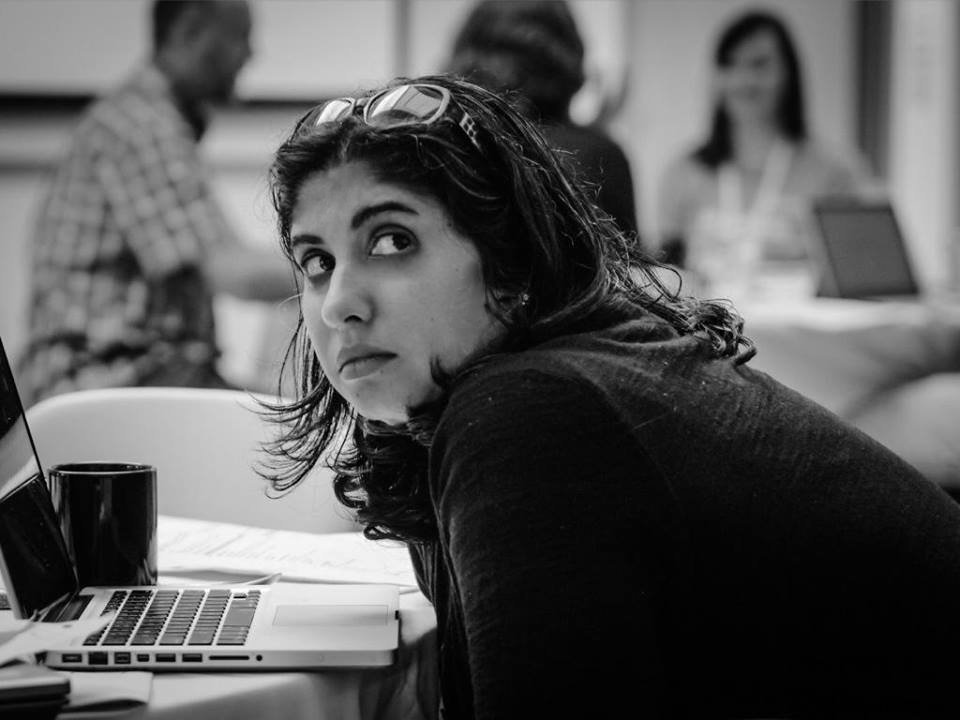
The College of Arts and Sciences’ Digital Humanities Program is launching an annual lecture that will bring a new voice and fresh perspective to campus each year.
Roopika Risam, associate professor of English at Salem State University, will give the inaugural “Uncommon Digital Humanities Critic” invited lecture with her talk, “The Theory and Praxis of Postcolonial Digital Humanities,” Oct. 24, at 3:30 p.m. in the Bailey Library of Andrews Hall, Room 228. The lecture is free and open to the public.
In her talk, Risam will examine how postcolonial digital humanities offers a viable approach to understanding, uncovering and remediating inequalities in one dimension of digital culture: digital knowledge production. Drawing from her book New Digital Worlds: Postcolonial Digital Humanities in Theory, Praxis, and Pedagogy (Northwestern University Press, 2018), Risam will explore how the full supply chain of knowledge production – from research to service to teaching – is implicated in an information-age politics of knowledge that has not only reproduced but also amplified dominant cultural values. She will further consider solutions that redress this challenge, arguing for the mobilization of cultural workers who are poised to create new digital worlds that more fully realize what it means to be human in the 21st century.
Risam’s work explores intersections between postcolonial, African American, and ethnic studies in the United States, and the role of digital humanities in mediating between them. Risam will be a somewhat familiar face on campus, as she was a contributing scholar and panelist for the “New Storytellers: Digital Ethnic Studies” forum at Nebraska in 2018 and continues to be involved in the Digital Ethnic Studies initiative.
Last year, Risam and a set of collaborators gained national attention for their work on “Torn Apart/Separados,” a digital humanities project that used data collected on immigrant detention to document the apparatus of immigration enforcement across the United States and that revealed the vast scale and depth of ICE operations.
Adrian S. Wisnicki, associate professor of English and the digital humanities program coordinator for the college, said the goal of the annual address is to give students and faculty the opportunity to learn from a new scholar each year while hearing about some of the most cutting-edge digital humanities projects.
“We will bring one scholar to campus per year who is a leader in the field to meet with students and faculty,” Wisnicki said. “It promotes knowledge exchange, but also works to spotlight the exciting digital humanities curricular work already going on at our university.”
Risam will meet with graduate and undergraduate students as well as with individual faculty members while visiting campus. Wisnicki selected Risam to visit after consulting with the Digital Humanities Curriculum Committee. The Uncommon DH Critic selected for 2020 is Miriam Posner (University of California, Los Angeles) who will visit campus in the spring.








